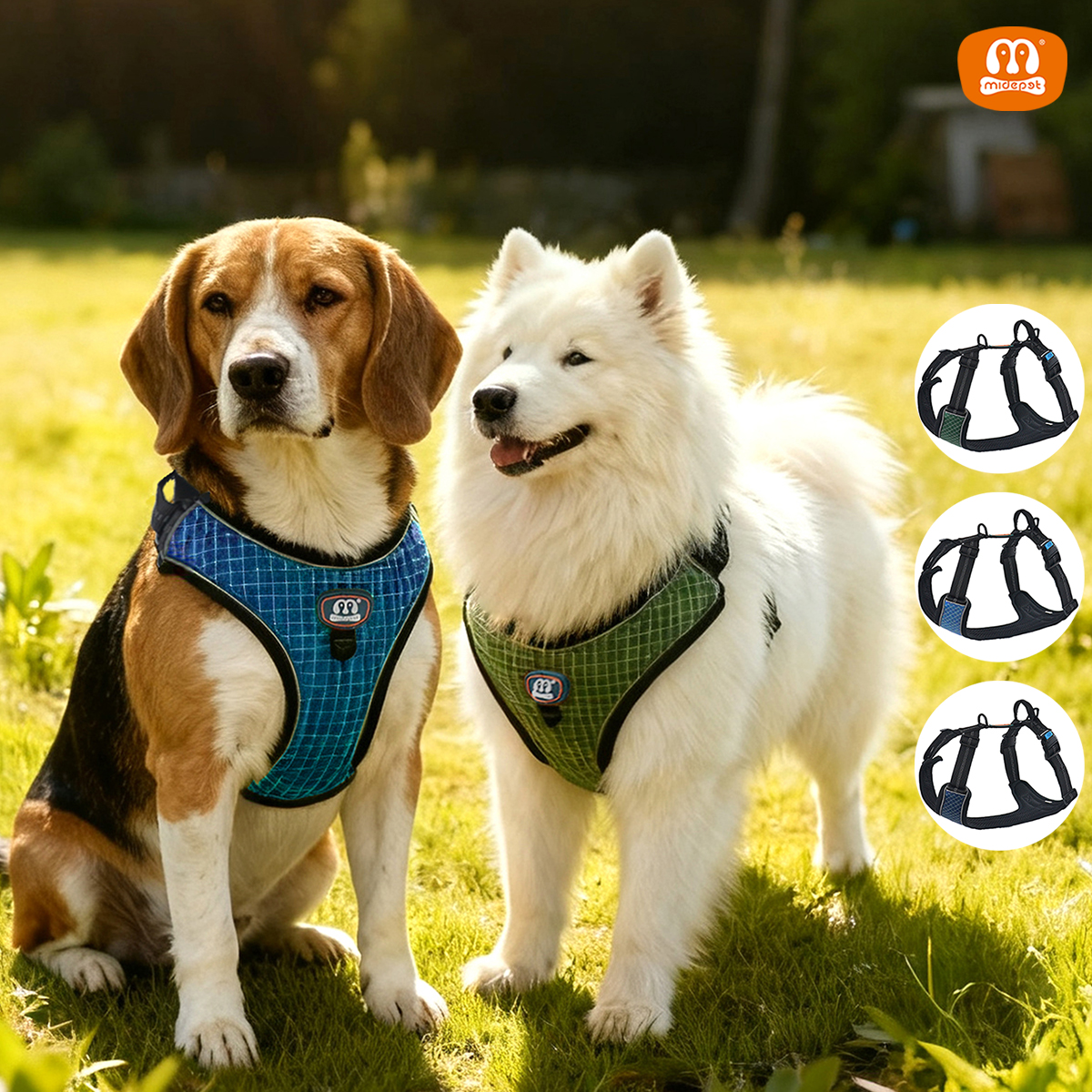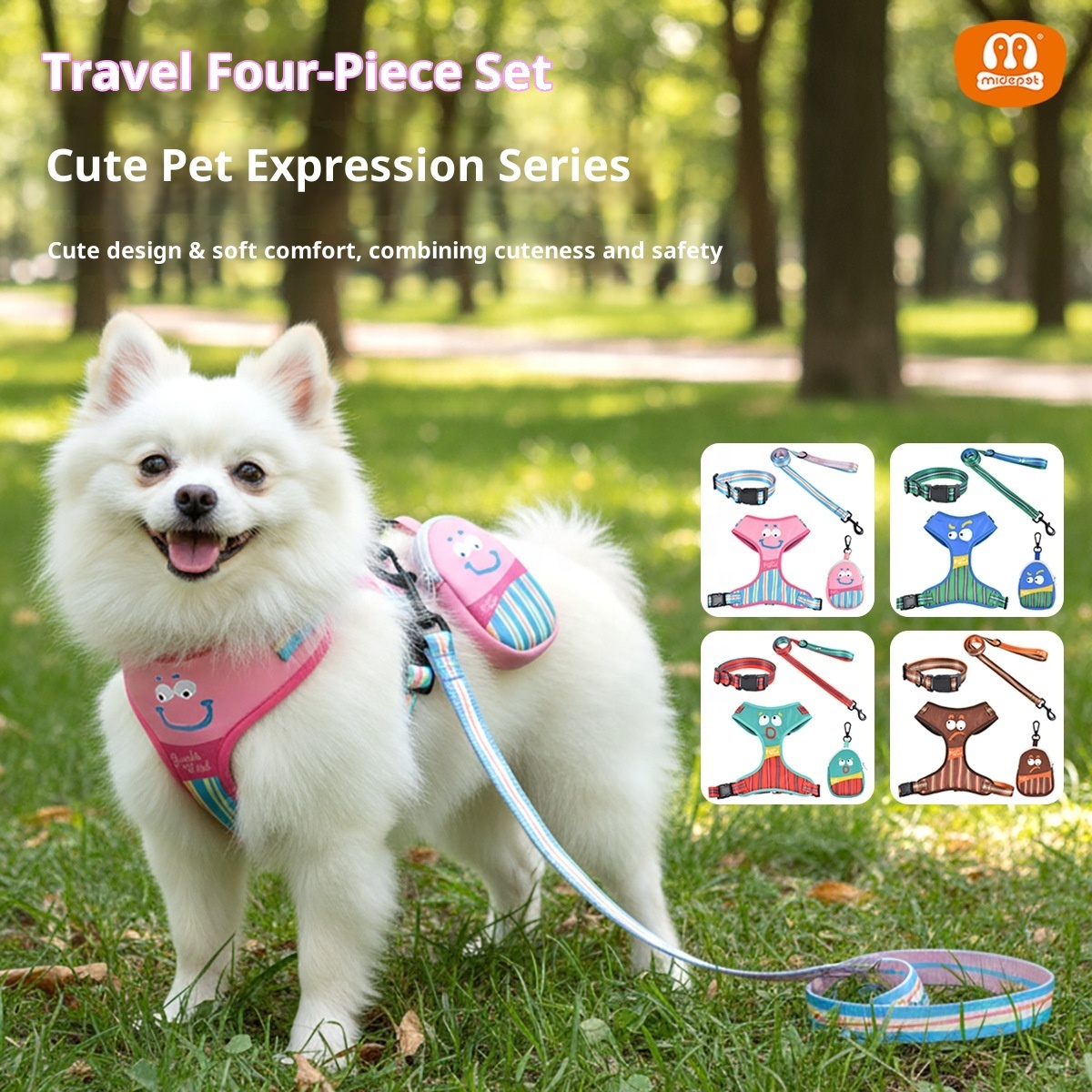How to Stop a Small Dog from Biting
How to Stop a Small Dog from Biting A Complete Guide to Handling Aggressive Little Dogs

Introduction
Small dogs might be tiny, but they can have a big bite! If you've ever wondered, "Why does my small dog always bite?" or "How can I stop my small dog from biting?"—you’re not alone. Many small dogs love biting, but what starts as a harmless nibble can turn into a real problem. In this guide, we’ll dive into why small dogs bite, how to handle aggressive little dogs, and most importantly, how to stop that biting behavior once and for all.
Section 1: Why Do Small Dogs Bite?
1.1 Common Reasons for Biting
Let's face it—small dogs have their reasons for biting, and it's up to us to figure them out.
· Fear and Anxiety: Your small dog might be scared of new things or people, and their way of dealing with fear is by biting. It’s like their version of saying, “Back off!”
· Territorial Instincts: Even small dogs can act like big-time protectors. If they think someone is invading their space, they might bite to defend their territory.
· Teething in Puppies: If your small dog is a puppy, they might bite because their teeth are coming in. Chewing helps relieve the pain, but your fingers shouldn’t be the target!
· Lack of Socialization: Dogs that don’t get out much might not know how to behave around other people or animals. Biting is one way they show they’re not sure what’s going on.
1.2 The Psychology Behind Small Dog Aggression
Understanding why small dogs love biting can help you tackle the problem.
· Some Dogs Just Love Biting: For some small dogs, biting is a way of playing or exploring. They might not mean to be aggressive, but that doesn’t make it okay.
· Biting vs. Larger Dogs: Small dogs sometimes get away with bad behavior because they’re small. But a bite is a bite, no matter the size of the dog.
· Genetics and Breeds: Some breeds are more likely to bite because of their genetics. Knowing your dog’s breed can help you understand their behavior better.
Section 2: How to Stop a Small Dog from Biting
2.1 Training Techniques to Stop Biting
Training your small dog not to bite doesn’t have to be hard. Here’s how:
· Positive Reinforcement: Reward your dog when they don’t bite. Treats, praise, and playtime work wonders. Make sure they know that good behavior gets them good things.
· Desensitization: Slowly introduce your dog to the things that scare them, like new people or loud noises. Over time, they’ll learn that there’s no need to bite.
· Socialization Tips: Take your dog out and about! The more they meet new people and other dogs, the less likely they are to bite out of fear.
2.2 Setting Boundaries
Teaching your dog what’s okay and what’s not is key.
· Consistent Commands: Use the same words and actions every time your dog bites. For example, saying "No bite" firmly can help them learn that biting isn’t allowed.
· Redirecting Biting: If your dog starts to bite, give them something else to chew on, like a toy. This way, they learn what’s okay to bite and what’s not.
· Using Time-Outs: If your dog keeps biting, give them a short time-out. This shows them that biting means playtime ends.
2.3 When to Get Professional Help
Sometimes, stopping biting needs more than just basic training.
· Knowing When to Ask for Help: If your dog’s biting is serious or you just can’t get them to stop, it might be time to call in a professional. Trainers and behaviorists can give you expert advice.
· How a Trainer Can Help: A professional can work with you and your dog to stop aggressive behavior. They have the tools and experience to handle even the most stubborn biters.

Section 3: Handling Aggressive Small Dogs
3.1 Safety First
If your small dog is aggressive, keeping everyone safe is the top priority.
· Handling an Attack: If your small dog attacks, stay calm. Use a firm voice to stop them and remove them from the situation. Never hit or yell, as this can make things worse.
· Using Muzzles and Harnesses: For particularly aggressive dogs, a muzzle can prevent bites during walks or vet visits. A good harness can also give you better control over your dog.
· Preventing Bites During Grooming: Many small dogs get nervous during grooming, which can lead to biting. Take things slow, and reward your dog for staying calm. You can also ask your groomer for tips on making the experience less stressful.
3.2 Dog-to-Dog Aggression
If your small dog doesn’t play well with others, here’s how to handle it:
· Breaking Up a Fight: If your dog attacks another small dog, separate them right away and check for injuries. It’s important to stop this behavior before it becomes a habit.
· Introducing Aggressive Dogs: If your small dog is aggressive toward other pets, introduce them slowly and in a controlled environment. Keep interactions short at first, and always supervise.
· Managing Multiple Dogs: If you have more than one small dog, make sure each has their own space and resources. This can help prevent fights over food, toys, or attention.

Section 4: Long-Term Strategies for a Bite-Free Home
4.1 Creating a Calm Environment
A calm home is a happy home, and it can help stop biting.
· Reducing Stress: Try to figure out what stresses your dog out and reduce those triggers. This could be loud noises, too many visitors, or changes in routine.
· Routine and Security: Dogs love routines! Feeding, walking, and playing at the same times each day can make your dog feel secure and less likely to bite.
4.2 Monitoring Progress
Keep track of how your dog is doing and make changes if needed.
· Tracking Improvement: Note when your dog bites and what triggers it. This can help you see if your training is working or if you need to try something new.
· Adjusting Training: If your dog isn’t improving, don’t be afraid to switch up your training methods. Sometimes a new approach can make all the difference.
4.3 Preventing Future Biting
Keeping the peace means staying on top of your dog’s behavior.
· Maintaining Good Behavior: Continue to reward your dog for good behavior and keep up with their training. This helps ensure they don’t fall back into old habits.
· Ongoing Socialization: Regular socialization and exposure to new experiences will help your dog stay well-adjusted and less likely to bite in the future.

Conclusion
Dealing with a small dog that bites can be tough, but it’s not impossible. By understanding why your dog bites, setting clear boundaries, and providing proper training, you can stop the biting and enjoy a more peaceful relationship with your furry friend. Remember, patience and consistency are key—and don’t hesitate to get help if you need it.









